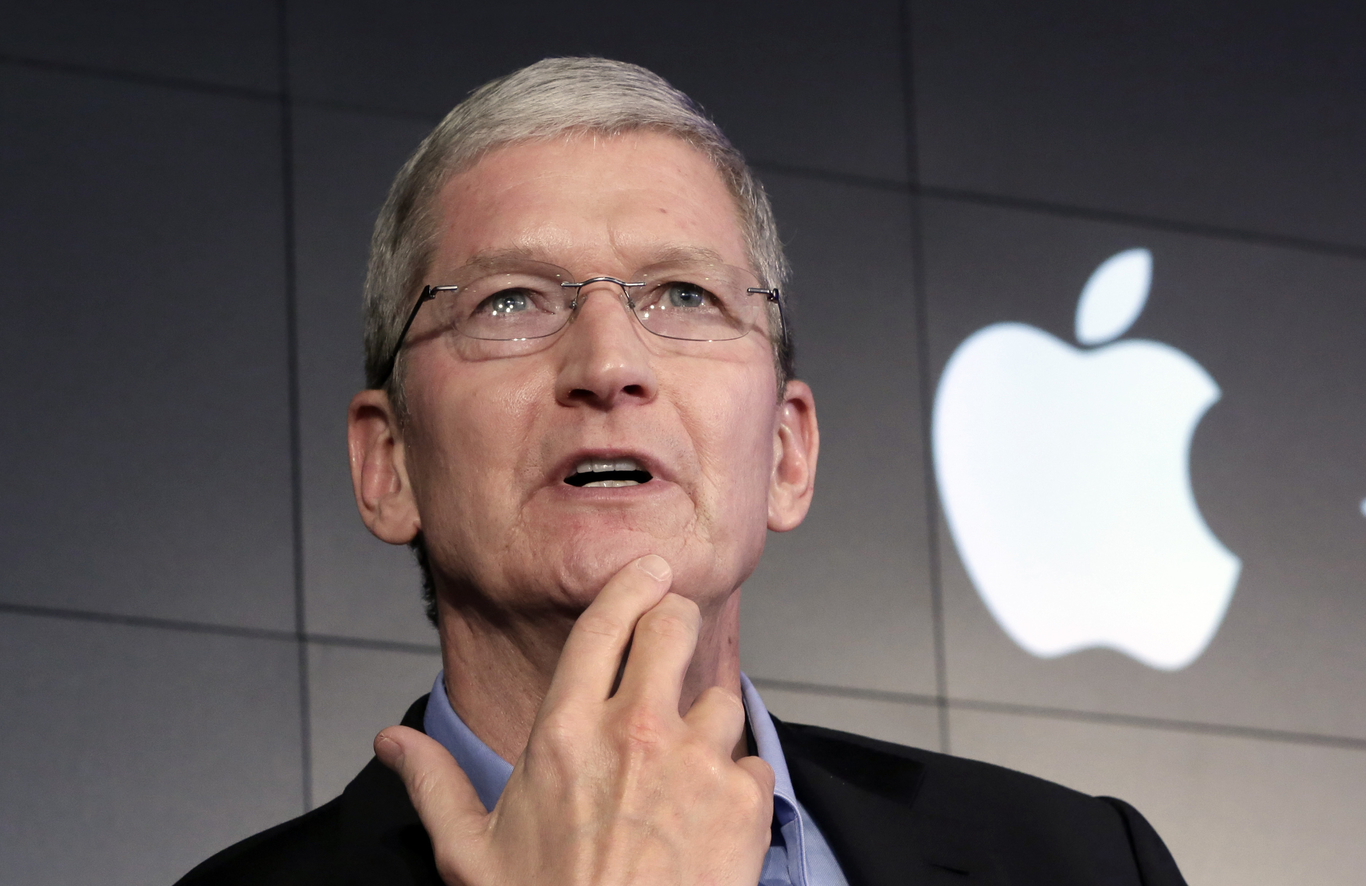Apples and leprechauns: Here are the biggest Irish business stories of 2016
Apple’s tax, ‘leprechaun economics’, Denis O’Brien and Bexit all got people talking in 2016.
SINCE THE RECESSION, business news has had a tendency to leap onto the front pages, and 2016 was no exception.
Plenty of important economic and business stories got people’s tongues wagging, and even saw Ireland make international headlines.
But which ones were the biggest, most widely read, and the most important? We take a look.
EU orders Apple to pay Irish tax
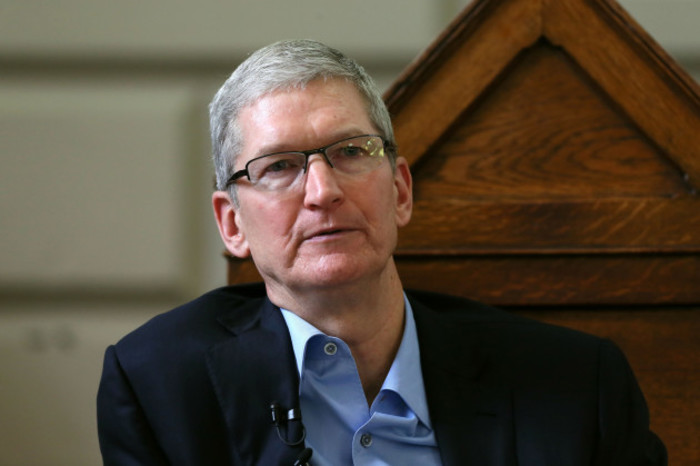 Apple CEO Tim Cook
Apple CEO Tim Cook
At the end of August the EU Commission ordered US tech giant Apple to fork over €13 billion in unpaid taxes to Ireland. The decision, and particularly the amount Apple was ordered to pay back, shocked many observers who had expected a much smaller amount, closer to €1 billion.
The decision kicked off a storm of controversy both at home and abroad, as some accused the EU of unfairly focusing on the tax practices of US companies, while campaigners in Ireland urged the government to take the money.
In particular, the ruling was seen by many as a message from competition commissioner Margrethe Vestager, who has been looking to get companies to pay more tax.
It has put Ireland at loggerheads with the EU, and with the government recently lodging an appeal to the decision, expect this one to rumble on into 2017 and beyond.
‘Leprechaun’ economics
If the predominant reaction to the Apple announcement was shock, the one to the reveal of the country’s GDP figures for 2015 was derision.
According to the poor souls at the Central Statistics Office, Ireland’s GDP, which measures all the goods and services produced by the country, rose by 26.3% last year. Most countries in the eurozone are growing at an annual rate of about 2%, if at all, and the Irish forecast had previously been for the high single-digits.
This meant that the figure of 26% was a complete bombshell, and it was one that was widely mocked at the time, with Nobel laureate economist Paul Krugman infamously holding it up as an example of ‘leprechaun economics’.
What the figures did demonstrate was the hugely distorting effect that multinational companies have on the Irish economy. To be fair to the CSO, there were lots of factors outside their control skewing the figure, but the organisation will probably be hoping that the figures for 2016 are a bit more bland.
Nama and Project Eagle
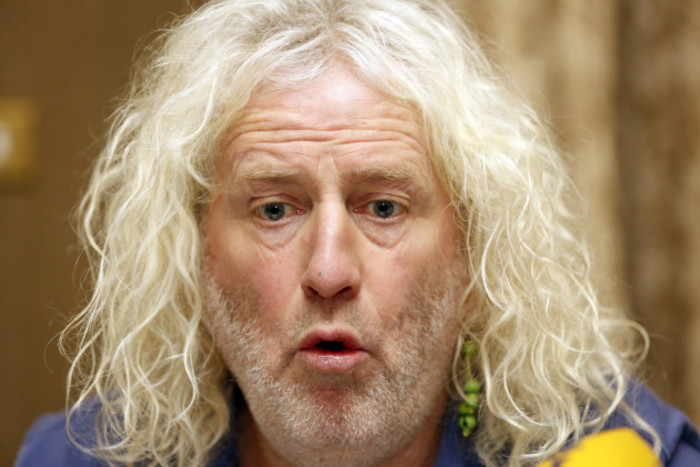 Independent TD Mick Wallace doggedly pursued Nama
Independent TD Mick Wallace doggedly pursued Nama
Perhaps worthy of Fora’s coveted ‘rolling controversy of the year award’, the sale of Nama’s Northern Ireland loan book, dubbed ‘Project Eagle’, was the story that just wouldn’t go away, no matter how much the bad bank wanted it to.
Things first kicked off in July 2015 when Independent TD Mick Wallace claimed that a Northern Irish “politician or party” had got a multimillion-euro fixer fee as part of the Project Eagle sale, which he said was undervalued by as much as €3 billion.
Then, in September, BBC Spotlight broadcast a secret recording of former Nama advisor Frank Cushnahan allegedly accepting a £40,000 payment from a Nama borrower in 2012. The government’s spending watchdog the Comptroller and Auditor General later said that the state could have lost as much as £190 million (€220 million) on the deal.
For its part, Nama has always said it got value for money on the deal and even went to the unprecedented step of rubbishing the C&AG’s report. Whatever your take, it is hard to disagree with the view of Labour TD Alan Kelly, who dubbed the affair ‘a PR disaster’.
Media ownership
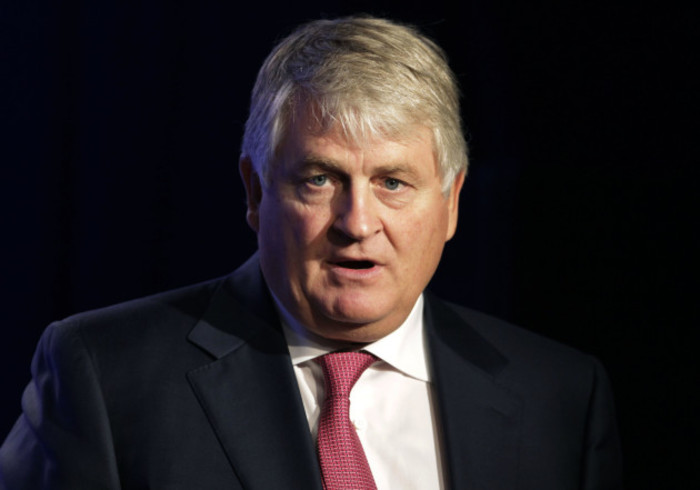 Businessman Denis O'Brien
Businessman Denis O'Brien
Denis O’Brien. A name that strikes fear into the heart of editors and joy into the heart of libel lawyers across Ireland.
While he was not quite able to top his exploits of 2015, when he tried to sue a Dáil committee, the billionaire was still the focus of much attention during the year, most recently for a media ownership report commissioned by Sinn Fein MEP Lynn Boylan.
As well as calling for a commission of inquiry into RTÉ’s role as Ireland’s state broadcaster, the study highlighted O’Brien’s ownership of the media and his “litigious profligacy”.
The billionaire then took the unusual step of replying directly to the report in a long statement in which he said that the Irish media industry is in decline.
Also worthy of interest was Independent News and Media’s acquisition of seven regional newspapers, Rupert Murdoch’s News Corp snapping up several Irish radio stations and the sale of new broadcaster UTV Ireland to Virgin Media, which also owns rival station TV3.
Panama Papers
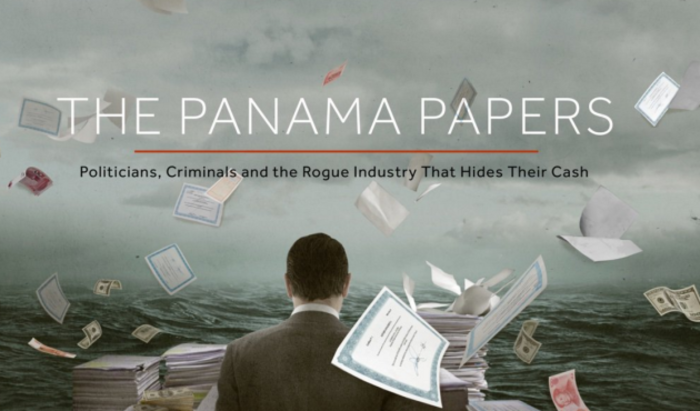
The leak of 11.5 million tax documents from Panama-based law firm Mossack Fonseca was one of the biggest stories of the year, revealing the offshore dealings of influential figures in the worlds of politics, business and sport.
There was also a decent Irish connection, with more than 300 companies mentioned in the leaked documents uncovered by the International Consortium of Investigative Journalists.
One of the more interesting details included information about a £250,000 deposit in the name of a British Virgin Islands company which was used to support former Fine Gael strategist Frank Flannery’s purchase of a house in London.
Tax, tax, tax
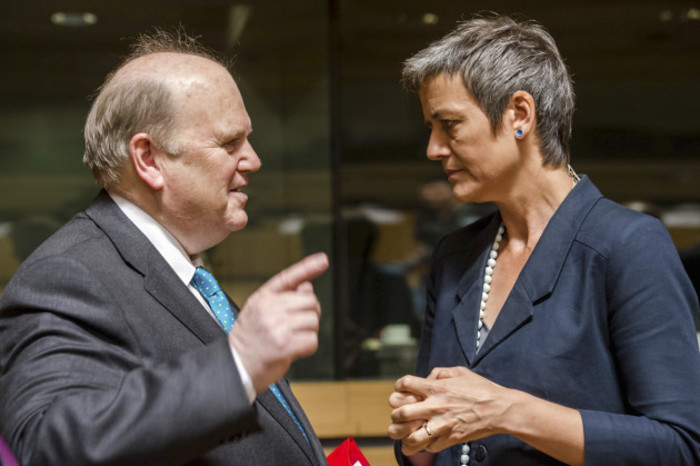 Finance Minister Michael Noonan and EU commissioner Margrethe Vestager
Finance Minister Michael Noonan and EU commissioner Margrethe Vestager
Ireland has always prided itself on its 12.5% corporate tax rate, the lowest in Europe and one which many experts say has given the country an edge in attracting foreign businesses. However, other jurisdictions are catching on.
The UK, the US and even Northern Ireland all pledged during the year that they will cut their corporate tax rates in moves that would likely have some sort of dent on companies investing in Ireland.
More broadly, in October the European Commission launched its long-delayed proposals for a common consolidated corporate tax base across the bloc in a move that, if implemented, could have a big impact on Ireland.
Although the Commission has said it is to crack down on big companies avoiding tax, the Irish reaction to the proposal has been one characterised by lukewarm enthusiasm at best.
Brexit
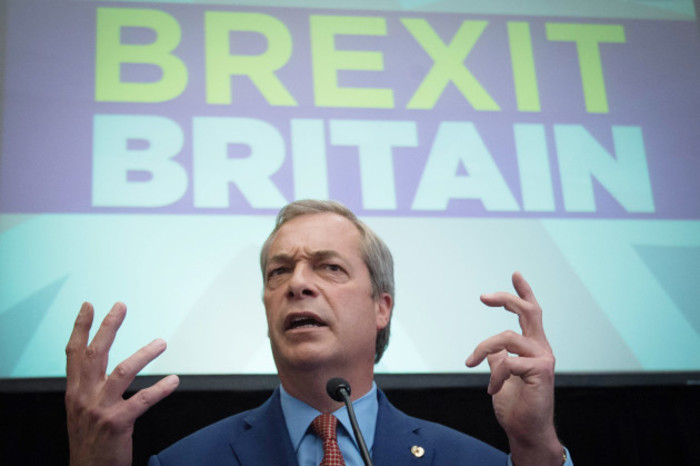 Former UKIP leader Nigel Farage
Former UKIP leader Nigel Farage
The surprise at the Apple ruling was nothing compared to the astonishment felt by many in business and political classes in June after the UK voted to leave the European Union.
Business leaders on both sides of the Irish Sea were overwhelmingly in favour of the UK staying in the bloc, and were caught blindsided at an outcome they never thought would come to pass. If it did, many had predicted a doomsday scenario, where the UK’s economy would be crippled overnight by dreaded ‘uncertainty’ over the vote.
That didn’t happen, as the country’s economic indicators all appeared decent in the immediate aftermath of the decision. However, it did have an impact on the price of sterling, greatly weakening it and making life harder for Irish exporters by extension.
Irish officials have tried to reassure the public that there is a plan in place, with the government trying to ‘Brexit-proof’ the Budget in October. However, no-one really knows what will happen until the UK pushes the button and triggers its official removal.
Anglo executives
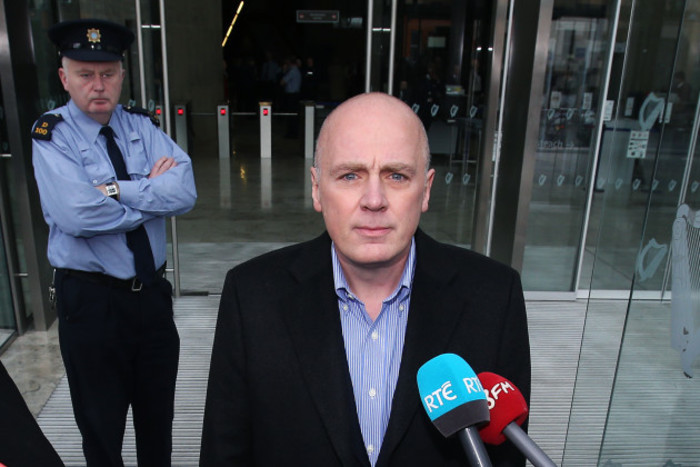 Former Anglo Irish Bank CEO David Drumm
Former Anglo Irish Bank CEO David Drumm
More than seven years on from the spectacular collapse of Anglo Irish Bank, several trials of the company’s former executives made their way through the courts.
Most high-profile was the sentencing of former Anglo Irish Bank executives John Bowe, Willie McAteer, and the former chief executive of Irish Life and Permanent, Denis Casey.
The trio, who were done for their part conspiring in a “deceitful and corrupt” €7 billion market deception scheme, were the most high-profile bankers yet to be handed jail sentences.
David Drumm, one of the key figures in the collapse of the infamous bank, has yet answer charges in an Irish court, but that is set to change soon. Drumm was extradited back from the US to Ireland in March and arrested in Dublin on his arrival.
The former Anglo chief executive was charged with 33 counts concerning alleged offences he is said to have committed at the now-defunct bank. He has been granted bail and is now due to face two trials, the first of which has been set for next April.
Vulture funds

After hovering in the background for years, so-called ‘vulture funds’, which bought Irish assets on the cheap during the recession, were dragged into the spotlight as they were linked with a number of controversies.
First, there was outcry in March when it was feared that about 200 residents in Tyrrelstown, Dublin, were simultaneously served with notices that they had to leave their rented homes following a deal between Goldman Sachs and indebted property developer Twinlite.
Then, there were revelations that vulture funds were using a loophole in section 110 of the Taxes Consolidation Act tax law to pay small amounts of tax here. The government announced that it would move to close the loophole, but even that caused consternation, as it was claimed that the vultures were being given too much wriggle room.
Officials will probably continue to face calls from the public to protect them from the faceless vultures, but as demonstrated by lobbying it faced during attempts to change regulations in the property industry, it is likely to face an uphill battle.
